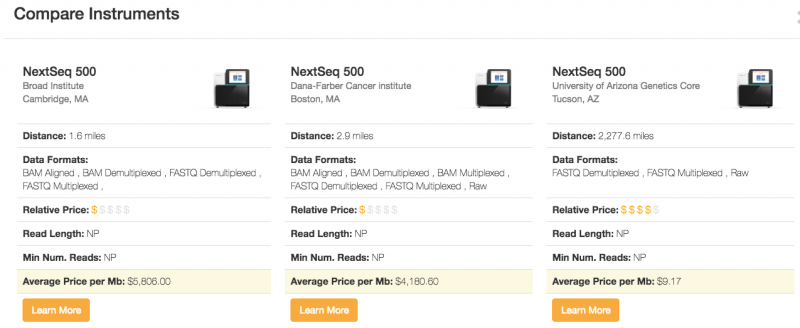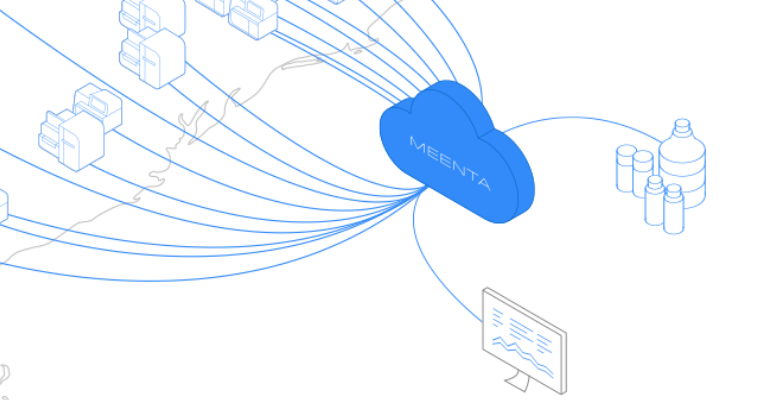Genome sequencing is one of the more complex subjects of life science, and those working in it have all sorts of difficulties. A recent graduate of Techstars Boston, Meenta is a startup looking to assists genome scientists in finding sequencers for research.
Meenta’s Co-Founder and CEO Gabor Bethlendy connected with us to talk about how the company’s technology is solving the problems involved with this particular part of life science. He also went into detail about the startup’s time at Techstars last year.
Colin Barry [CB]: Meenta is a startup directly involved with genome sequencing. Does everyone on the team have a certain level of experience working within this aspect of life science? If so, could you share what kinds of organizations they worked with?

Gabor Bethlendy [GB]: This is a great question! The inspiration for Meenta came from my own long career of deep involvement in genomics and life sciences. I ran the microarray core facility at University of Rochester, drove business development at Roche, and then founded Parabase Genomics as the Chief Commercial Officer. From these experiences, I was able to see first hand the problems our customers face. My co-founder, Stephan Smith, has a wide range of experience building tech at Maxwell Health and NPR and our team has backgrounds from Santander Bank, Life Science Nation, to CureMatch, Yaypay, HP, and Techstars. The diverse skill sets and backgrounds go to show that while Meenta has a genomics and life science focus, the organization has the expertise, scalability, and growth potential of a true SaaS technology company. And that’s important because while right now, Meenta is focused on providing easy and transparent access to Genomic Sequencing, that’s just the starting point. The Meenta platform is applicable to every large instrument in life science - from proteomics to biophysics. Stephan and I built our team with that much bigger potential in mind.
CB: How did the team come together to form the company?
GB: My partnership with Stephan actually began through our kids, who happen to go to the same school. After selling Parabase Genomics to Quest, I had been thinking about how this huge problem of transparency and simplicity could be solved in the genomics market, and around that time, the principal emailed both of us about our high energy kids needing to sit in front of the class. Weeks later, I ran into Stephan at a school fundraiser and we got to talking about how we can best help the kids. Family is very important to both Stephan and me, so we spent quite a while trying to find a solution for our children and eventually, the conversation progressed to work. He told me he was a software developer and I told him about this genomic sequencing problem I had seen so much of throughout my career. That was the summer of 2016 and the next few months we became obsessed with finding a solution. We spent months working out of coffee shops, standing outside of conferences to interview potential customers and building the initial MVP before we incorporated the company later that year.
CB: What are some of the problems life science organizations face with genome sequencing and how Meenta is looking to tackle them?
GB: Sequencing is just a small part of what we are tackling. While the problems faced by genome sequencing are large, there’s a larger macro problem: life science outsourced services is a huge but incredibly complex and fragmented market. The only way scientists have been able to navigate this complex structure is without technology and using essentially “institutional knowledge” or word-of-mouth referrals. From sample preparation and instruments to data analysis, both vendors and service providers were relying on old-fashioned “brick and mortar” styles of sales and workflows using PDF quotes, spreadsheets and the like. We like to say scientists created ultra fast instruments but have failed to make an accessible, transparent network to provide pricing and availability for them. They’ve essentially created supercomputers without the internet to connect them. Our vision is to build this network by mapping and organizing all these instruments so scientists at research institutions, biotechs and pharma can easily streamline their processes.
CB: Can you explain how your technology platform works?
GB: We have two entities, users --typically scientists, and hosts, who own the equipment. A user can search, find and book a genome sequencer on demand instantly. No quotes, no email… none of the back and forth that is traditionally associated with accessing these instruments. The UI is built out to match the choices and decision patterns that scientists make and it helps them find the configuration they are looking for. The hosts lists the instruments with run type, run mode, pricing, and availability as well as how they want samples submitted and what data formats they can deliver to the user. Users then can search live instruments that, when booked, will run on designated dates. We ensure that the host delivers high-quality data on time. During the entire process, the platform ensures the user is kept up to date and filled in with where the sample is and what is going on. For the hosts, we actually operate similarly to a point of sales system, helping them streamline their operations and sales processes. With Meenta, they simply provide the needed information and can spend less time answering emails and working on administrative issues, which saves them time and money.

CB: How long was the development process on something like this?
GB: It’s taken 18 months of working with the top experts and thought leaders in the field like the Broad Institute and Harvard to dive deeply into exactly what the challenges are for them and how we can build a product that works. Throughout this process, we have kept scalability and flexibility in mind. Meenta has been expertly designed, built and tested to best fit exactly what scientists and instrument owners are looking for and to be scalable so we can onboard any new instrument in just a few days.
CB: You were part of Techstars Boston last year. Can you share some of your experiences with the organization?
GB: Techstars is more than just another accelerator. It is one those few times or places in life where you have an opportunity to do great things. It’s an environment that allows you to put all the learnings to date in your life into one single compact timeframe and build your company (and team) from the ground up in a very systematic way. If you are a person that wants a boot camp that takes you to your absolute physical and intellectual limits, and if you can find a way to thrive under that pressure and do it for three months, then it’s perfect for you! Techstars has not just made Meenta the company it is today, it also made us the people we are!
CB: The biggest part of Techstars is its Demo Day where you have to pitch to an audience. Since your company is working in a much different sector compared to other startups, care to share any tips on how to pitch a startup working in life sciences?
GB: Ah, that’s a great one! It was certainly a challenge and we often joked internally, “How do we describe the round Earth to folks who only know of a flat one?” I think even two days before Demo Day, we were reworking that pitch! My main advice is that it’s impossible to build a good pitch like that alone. You need to pitch internally and then to multiple audiences to get the nuances down. Make sure you listen and think deeply about the feedback you get, but don’t take it personally. It’s all information that can help you shape the pitch so your passion and conviction come through your tone. Someone external to your field of expertise is likely a better practice audience than your “yes” friends who cheer for you. And in the end, remember, you need to tell a good story! It’s all about the story at the Angel level: who you as a company are and how that comes across.
CB: It’s always interesting to hear the backstory behind a startup’s name. How did the team come up with a name like Meenta?
GB: That is a highly guarded secret, but it has to do with where I am from!
CB: Any other additional comments you’d like to make?
GB: We are always looking for passionate people who want to tackle a big problem. If you are one of those dreamers committed to making your dream a reality, come visit us.

